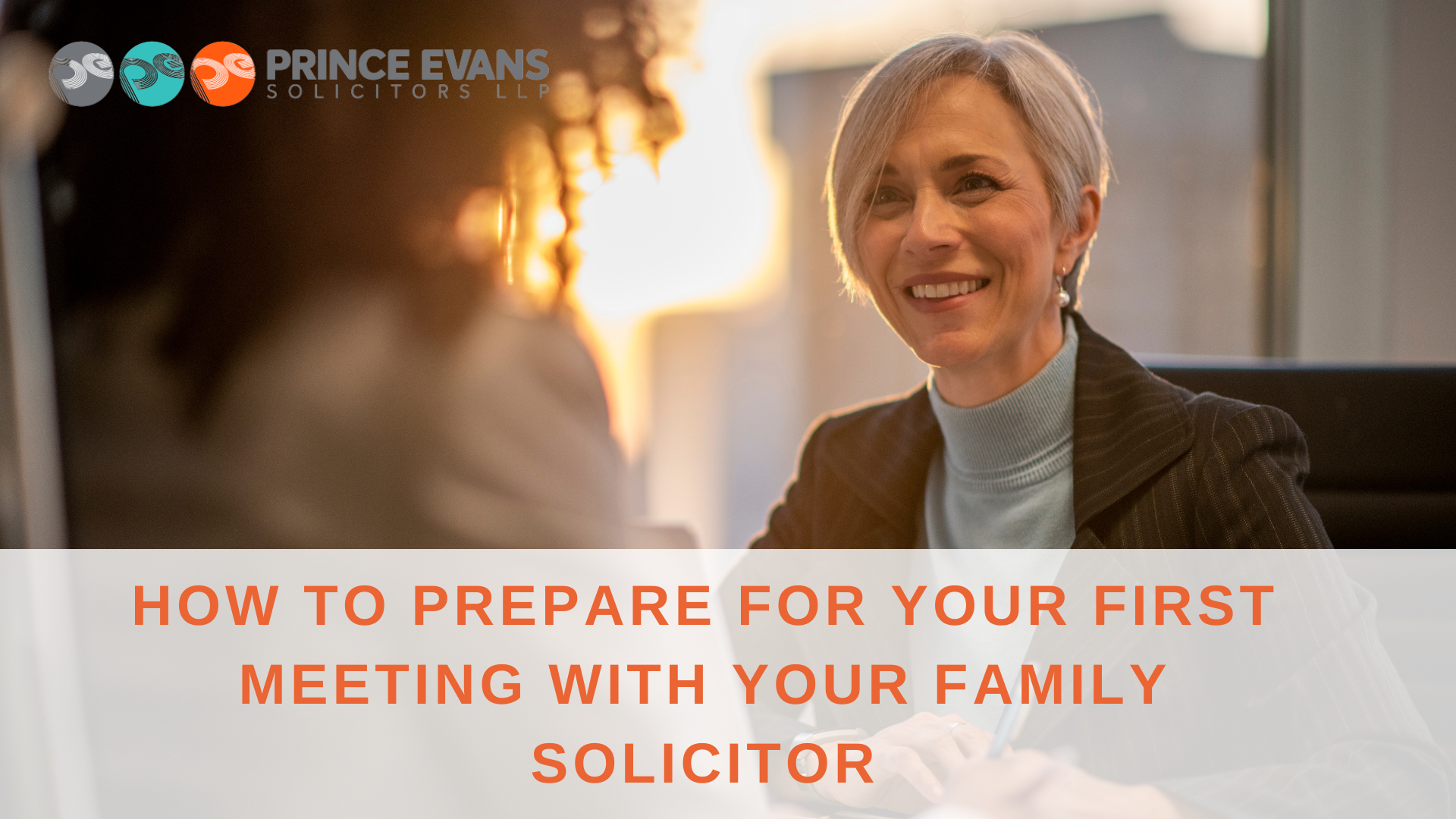How to prepare for your first meeting with your family solicitor
The breakdown of a relationship/marriage can be difficult to deal with. It is usual to feel somewhat overwhelmed and anxious. Seeking legal advice from a solicitor on such sensitive and personal matters can be equally as daunting, especially for those who have never sought advice before.
To get the most from your initial meeting with your solicitor, read on for our top tips to help you prepare for the meeting.
- What bring to your meeting
It is usual to be asked to bring to your first meeting with your solicitor one item of photographic ID (e.g. a copy of your passport or driving licence) and proof of your address (such as a utility bill).
If your ex-partner has sought legal advice, you may have received correspondence from them, their solicitor or the court. Should this be the case, bring such paperwork with you so that you can talk this through with your solicitor.
- Take support with you if you need it
There is always a lot to take in during your first meeting and emotions are often running high, having a supportive friend or family member to act as a second pair of ears during a meeting can be invaluable. Your solicitor will be used to this, but think carefully about who you bring as you will be discussing a lot of personal information.
- Come prepared with information about your circumstances
At your first meeting, your solicitor will want to gather as much information and detail about your situation as possible. Preparing a list of key events, dates and or relevant people can be incredibly helpful, for example when did you meet, move in together, the date you got married and the date you separated (if applicable). If you are seeking advice in relation to divorce and how to resolve your finances, consider preparing a summary of your financial position to get the most out of your meeting. A short note of what you and your spouse hold in joint names and what you hold separately is a good place to start. The most common assets are the family home, pensions, savings, investments, policies etc. You should also note down any debts. Consider when were properties purchased and how were they funded? Don’t worry about this too much or overthink it, exact figures and documents are not required at this early stage but having a good overview will help.
- Don’t be afraid to ask questions
Often clients have questions, however when they get to the meeting, there is so much to take in or discuss, they forget the questions they needed to ask.
Make a list of questions you what to ask, by doing so, you will be able to keep your discussions with your solicitor focused and directed. This will also enable you to get the most out of the meeting and give you some peace of mind about the things that you were concerned about.
- Take time to reflect
Unless there is a pressing issue that needs to be dealt with urgently, take time to reflect on the advice you received in your initial meeting and think about your various options.
At the end of the initial meeting, your family solicitor should provide you with a cost estimate or likely fees going forward.
Seeking advice from a family solicitor does not commit you to taking matters forward any further. Some clients simply wish to obtain early advice about their options, which in turn can help them make an informed decision about their future. By taking the time to think about your situation and focusing on what you hope to achieve, you ensure that complete and fully informed advice is provided to you from the beginning.

